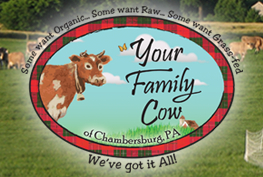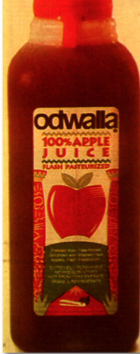The American Cheese Society has a, uh, cheese problem.
While regulators and retailers reassess the safety of raw milk cheese, ACS declared last week raw milk cheese ”when produced and sold under current FDA guidelines, can be consumed without unnecessary risk.”
The U.S. Food and Drug Administration began a comprehensive review of the 60-day aging rule in .jpg) 2009. Officials said the review was done and was awaiting approval before release.
2009. Officials said the review was done and was awaiting approval before release.
That was over a year ago.
The debate focuses on a federal rule that requires cheese made from raw milk to be aged for 60 days before it is deemed safe to eat. Aging allows the chemicals in cheese, acids and salt, time to destroy harmful bacteria. ?Scientists have found, however, that 60 days of aging is an overly simplistic guideline, in part because there are so many types of cheese and different ones may require different safeguards.
In one 2010 outbreak, 38 people in five states became sick from raw milk gouda made by Bravo Farms of Traver, Calif., and sold through Costco. In another outbreak, eight people in four states were sickened by bacteria traced to soft cheeses made by Sally Jackson, a pioneering cheesemaker in Oroville, Wash.
In Ms. Jackson’s case, investigators documented unsanitary conditions that could have played a role in making the cheese unsafe. And in the Bravo case, investigators charged the company with packaging cheese for sale before the required 60-day aging was complete.
The American Cheese Society (ACS) endorses current FDA raw milk cheese guidelines for manufacturers, including:
• producing cheese in licensed facilities that are routinely inspected on the local, regional, and federal level;
• producing cheese under the oversight of licensed dairy handlers; and,
• aging cheese for a minimum of 60 days before it is sold.
The majority (approximately two-thirds) of ACS members voluntarily exceed these standards by establishing and adhering to a Hazard Analysis & Critical Control Points (HACCP) plan, and following (1).jpg) these additional ACS-recommended best practices:
these additional ACS-recommended best practices:
• taking part in ongoing food safety education;
• regularly conducting product and environment testing;
• maintaining accurate and up-to-date records;
• seeking third party certification;
• building relationships with local, regional, and federal inspectors; and,
• adhering to all state and federal regulations and industry standards.
Shouldn’t any producer of potential risky food comply with food safety basics?
 belief that no restrictions should be placed on milk sales, as long as producers and consumers carefully follow the directives handed down by authorities.
belief that no restrictions should be placed on milk sales, as long as producers and consumers carefully follow the directives handed down by authorities.
.jpg) contaminated with E. coli O157:H7. On June 7, 2012, the producer was notified of a preliminary positive test result and who volunteered to suspend raw milk sales until the sample results were confirmed.
contaminated with E. coli O157:H7. On June 7, 2012, the producer was notified of a preliminary positive test result and who volunteered to suspend raw milk sales until the sample results were confirmed. .jpg) 2009. Officials said the review was done and was awaiting approval before release.
2009. Officials said the review was done and was awaiting approval before release.(1).jpg) these additional ACS-recommended best practices:
these additional ACS-recommended best practices:
.jpeg) regulations designed to protect consumer health, and released a statement saying "discussions are still ongoing."
regulations designed to protect consumer health, and released a statement saying "discussions are still ongoing.".jpg) purchased from Jerry Dell Farm should contact their health care provider.
purchased from Jerry Dell Farm should contact their health care provider..jpg) contracting salmonella.
contracting salmonella..jpg) department decided how to regulate the newfangled method. … Now restaurants desiring to use the sous vide method must have an approved HACCP plan to do so.”
department decided how to regulate the newfangled method. … Now restaurants desiring to use the sous vide method must have an approved HACCP plan to do so.”
(1).jpg) The artisan cheese maker temporarily shut down.
The artisan cheese maker temporarily shut down. O157:H7. Investigators believe that some of the apples used to make the cider may have been insufficiently washed after falling to the ground and coming into contact with deer feces.
O157:H7. Investigators believe that some of the apples used to make the cider may have been insufficiently washed after falling to the ground and coming into contact with deer feces.